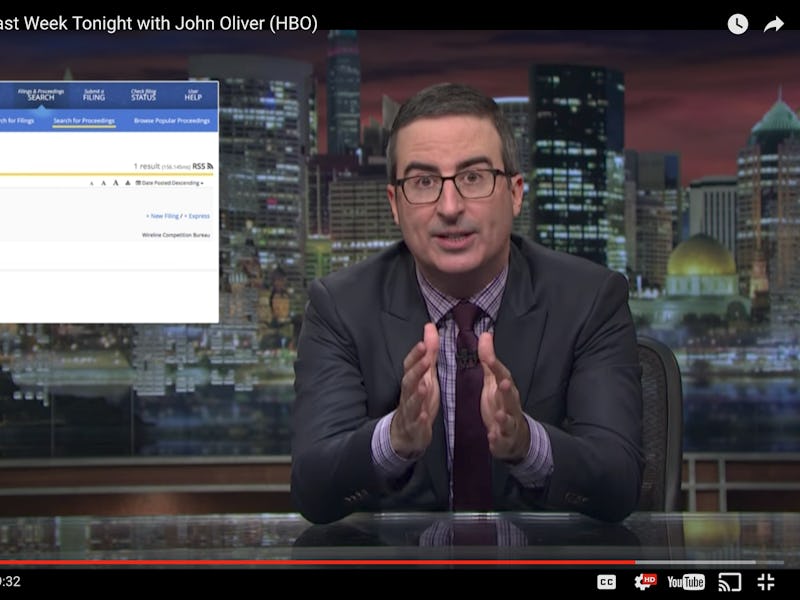John Oliver's Net Neutrality Story Seems to Have Backfired
The FCC's calling it a denial of service attack.

On Monday the Federal Communications Commission (FCC) issued a statement announcing that it was hit with a denial of service attack after John Oliver called upon the internet to barrage the FCC’s website with pro-net neutrality comments.
In the statement, the FCC noted that users had experienced “delays” while trying to use the commission’s electronic comment filing system starting at midnight on Sunday, right after Oliver’s segment aired. “These were deliberate attempts by external actors to bombard the FCC’s comment system with a high amount of traffic to our commercial cloud host,” the release reads.
In his segment, Oliver talked about the FCC’s recent efforts to rollback Obama-era regulations that prevented internet service providers (ISPs) from blocking content and charging websites to load quickly. The FCC’s proposal would harm net neutrality, a concept that describes an internet in which all websites are equally easy to access; among other things, it would risk higher barriers of entry for online innovation and allow internet service providers to force your hand when you’re deciding between streaming companies or between other competing services.
Oliver told viewers to voice their opposition to the proposal by commenting on it online. They immediately did, flooding the system with thousands of new comments.
But that’s not why the FCC site experienced delays. The Commission’s statement indicates that the heaviest traffic wasn’t coming from people who were trying to comment; it was from actors who were trying to impede access so that users couldn’t comment. It explains, “These actors were not attempting to file comments themselves; rather they made it difficult for legitimate commenters to access and file with the FCC.”
The page on the FCC's website that was experiencing difficulties.
In this kind of attack, called a “denial of service attack” (DDoS), hackers flood a site with enough traffic to crash its servers or otherwise impede access to it. The statement says that there were “multiple” such efforts, and that though the system itself remained online, “these DDoS events tied up the servers and prevented them from responding to people attempting to submit comments.”
An hour after its statement, the FCC released advice for parties who want to submit online comments as a group; it recommends that these groups notify the FCC in advance, publish all the comments under a single file, or use the Commission’s electronic inbox instead. These tips won’t prevent DDoS attacks, but they could help manage periods of innocuous heavy traffic.
John Oliver’s advocacy about net neutrality helped popularize these ISP regulations when they were passed at the end of the Obama administration (at the time, his pleas for people to comment on the FCC’s website caused the site some difficulties, too). His activism may make a difference in preventing the regulations’ removal, too; by nature, DDoS attacks are usually just a temporary barrier to leaving a comment.
If you’d like to comment on the FCC’s proposal, go to this website and hit “Express.”